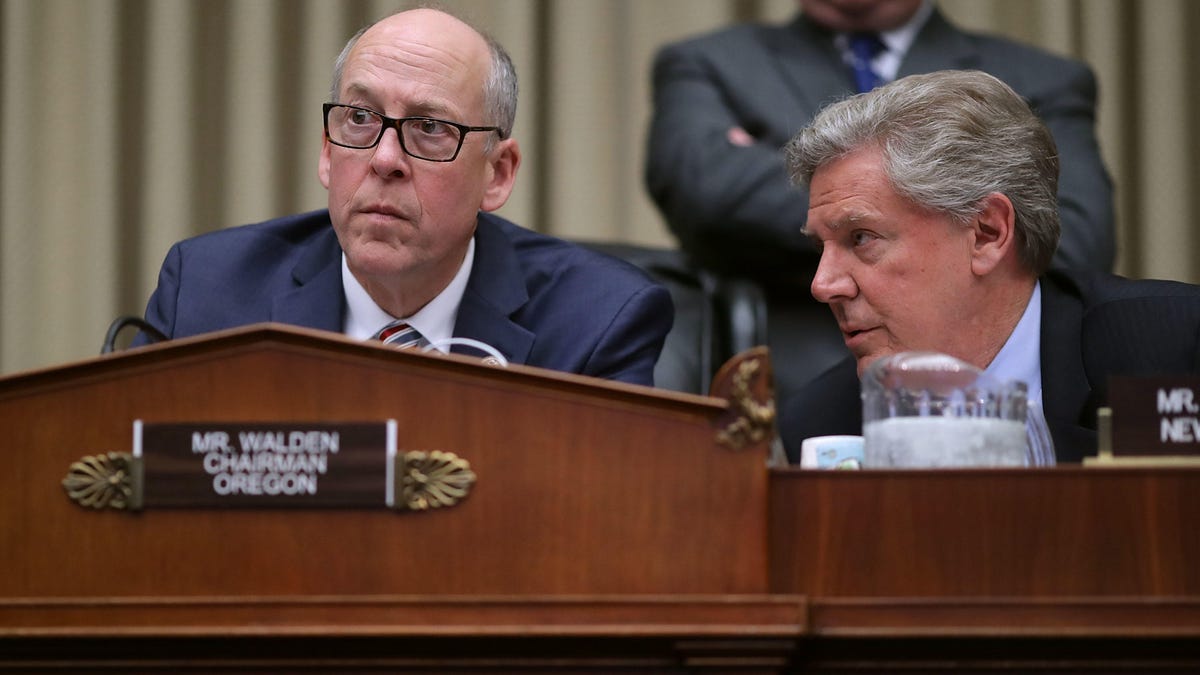House passes bill to block robocalls
The bipartisan Stopping Bad Robocalls Act requires calls to be verified and allows the FCC to take action against spam callers.

Energy and Commerce Committee Chairman Frank Pallone (right) and ranking member Greg Walden (left) said Wednesday that the House passed the Stopping Bad Robocalls Act by a vote of 429-3.
The House on Wednesday passed a bipartisan bill designed to stop robocalls. The measure, called the Stopping Bad Robocalls Act, passed by a vote of 429 to 3.
"This comprehensive bill requires every call to be verified, allows the blocking of spam calls, and empowers @FCC to protect Americans from scammers," tweeted Rep. Frank Pallone, a Democrat from New Jersey and chairman of the Energy and Commerce Committee.
Pallone and Greg Walden, a Republican from Oregon, introduced the bill to the House of Representatives last month. If passed into law, it would require carriers to use technology to verify numbers shown on caller ID and allow the Federal Communications Commission to take action against robocallers.
Americans received 47.8 billion robocalls last year, nearly half of which were from scammers, according to an FCC report released in February. Complaints about illegal robocalls have increased from 172,000 in 2015 to 232,000 in 2018, according to the report.
In May, the Senate passed an anti-robocall bill called TRACED, which would improve enforcement policies and coordination between agencies policing robocalls. It would also require phone companies use a technology protocol called SHAKEN/STIR to ensure calls are authentic and allow for quicker tracing of illegal calls to find who's responsible.
Sen. Ed Markey, a Democrat from Massachusetts, said in a tweet that the House will work with the Senate to "conference our robocall bills and send legislation to the president."

